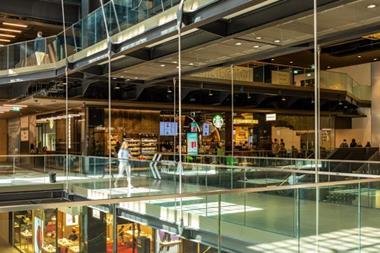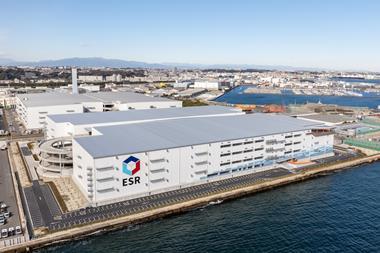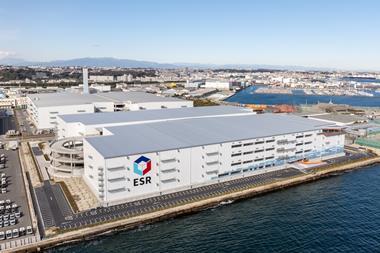Where to invest in the Maghreb? Hospitality leads the way but opacity and government restrictions limit scope. Shayla Walmsley reports
If you want to identify investment potential in North African real estate, just follow the tourists. It started with Morocco and Egypt; now even Libya - commodity-rich but regime-poor, and North Africa's remaining radical red citadel - is getting in on the tourism boom. To date, investment in the region has primarily come not from western institutional investors but from Gulf-based developers and sovereign wealth funds. Few European and US investors have been willing to invest in a region that is potentially volatile, politically unstable, and somewhat less than full-throated in its enthusiasm for economic reform.
One exception is Morgan Stanley's Special Situations Fund III, an opportunistic fund that attracted $2.5bn (€1.6bn) in its most recent fund-raising round from pension schemes including California State Teachers Retirement System (CalSTRS). Although Morgan Stanley declined to comment on its prognosis for the North African markets, CalSTRS spokeswoman Sherry Reser made clear that the allocation was incidental. The scheme, she said, had "no opinion" on the region.
Morocco
A recent note from Hamptons Research compared Morocco's property transformation to that in Dubai, with strong demand for residential as a result of equally strong tourism growth.
Dubai-based Emaar (which owns Hamptons International) is investing $8.7bn in resort development in the market. In 2006 overseas investment in the Moroccan market totalled $15bn, although the only pension fund investment has been from Hermes, the £36.2bn investment manager owned by the BT Pension Scheme, which accounts for 1% of the market.
"Morocco is the first step to offering property across Northern Africa," says Hamptons' head of research, Rob Bruce. "We see no apparent limiting factors that would hold back its development. By 2010, Morocco will offer a number of newly constructed economic cities. Whether this is a plateau for capital prices time will tell, but if, as expected, this provides the correct framework, it will enable greater economic growth - with associated housing market benefits."
Tunisia
Once North Africa's answer to Silicon Valley - a reasonable punt for a small country with few natural resources - Tunisia is still attractive to investors because it has sunshine, with forecast annual tourism growth of 4.3% for the next decade.
James Gonzalez, a market analyst at Obelisk, cites a maturing hospitality sector, pointing to the entry of hotel groups including Sheraton, Renaissance, Sofitel and Radisson SAS. "Such strong tourism has had a positive knock-on effect on its property market," he says.
Gonzalez also points to cross-border tourism with Libya and Algeria, and a sophisticated infrastructure, with seven international airports. An eighth, in Enfidha, outside Tunis, is scheduled for completion next year. It will be North Africa's largest.
Tunisia liberalised regulations restricting foreign investment three years ago. A lack of financing, in Tunisia as in Morocco, will be a problem - but only in the short run, Gonzalez believes. "The market is still very much in its early stages: foreign ownership of residential property was only granted three years ago and prices are low - comparable to those in Morocco five years ago."
Libya
Libyan law effectively prohibits foreign direct ownership of property. Yet mooted economic liberalisation and the cooling of political tensions with the West since 1999 might change that - eventually.
The northeast regional government this year hired Cushman & Wakefield to advise on the potential for tourism and infrastructure along 300km of coastline. The first stage of the al-Birdi project will be complete by the end of September, and the second by the end of the year. "We're providing recommendations from a tourism perspective," says Philip Camble, a director at the firm. "Decisions will ultimately need to be taken at a high level."
Political rapprochement has done little to reduce a lumbering bureaucracy as evident in property as in any other sector. In 2000 Camble worked on the redevelopment of an area of central Tripoli. That project, dominated by office, has since stalled.
"There's always a risk the project won't come off. We can only advise the client. It's up to them what they do with the advice," he says. "But there does seem to be momentum to the development of tourism. You don't build a new airport for a couple of oil men."
Despite increased political will, investment in Libyan real estate is still almost exclusively the preserve of Gulf investors. Barwa Real Estate, a subsidiary of the Qatari Investment Authority, will invest $2bn in Libya's state-owned property development firm. A similar deal struck between the UAE and the parastatal Libyan Social and Economic Development Fund will develop real estate and infrastructure projects - starting with a mixed-use residential, commercial and retail project in the capital, Tripoli.
Egypt
Egypt should in theory dominate the regional property market because of its sheer size. Yet despite 12% yields in some areas of Cairo - with much lower yields in Red Sea and other coastal areas - title is opaque and restrictions on foreign property ownership make Libya's look lax. In any case, economic growth will depend on political stability, and political risk is ever-present, notably over succession to the ailing but seemingly immortal President Hosni Mubarak.
Algeria
Algeria languishes even behind its Maghrebi neighbours. Political strife between the seemingly inexhaustible government of Abdelaziz Bouteflika and Islamist insurgents has stifled incipient attempts to build a tourism sector and, more broadly, economic growth. Add to this scarce land (and high prices as a consequence) and the limited progress in a $60bn five-year residential spending programme announced in 2005.
Believe the hype?
Is North African real estate overhyped? Probably. Royal Institution of Chartered Surveyors economist Oliver Gilmartin points to a rise in the inducements needed to secure tenants across the Middle East. "If there were a lack of available space and strong demand, you wouldn't need them," he says. "If demand were to start to weaken, then investor activity would inevitably slow. Property has peaked in the Middle East.
"The sentiment for the Middle East and Africa is positive compared with other markets… but the pace of growth is slowing, including in the Middle East. Tenant demand is still increasing but the momentum may have peaked. It's still going forward but the foot's off the pedal a bit."












